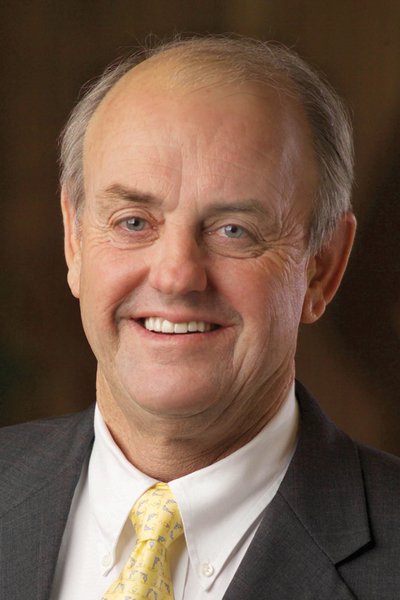
Class XXV
Stanley E. Reed
A third-generation cotton and soybean farmer from Marianna, Stanley Reed spent his life advocating for agriculture and rural Arkansas. He was passionate about the farm way of life and leading the industry through a time of technological change and advancement. Prior to his death in July, 2011 Reed served his state and fellow farmers and ranchers in a number of capacities. A member of the Lee County Farm Bureau, Reed was elected to the Arkansas Farm Bureau board of directors in 1987 and served on the board for 21 years. He spent six years as secretary-treasurer and four years as vice president, before being elected president of the organization in 2003. Reed led the organization for five years before stepping down voluntarily in 2008. He understood the need to bolster trade relations with foreign markets for Arkansas agricultural products and led missions to numerous countries including Cuba, Taiwan, South Korea, Japan, Russia, and Panama. Reed also spent four years representing Arkansas on the American Farm Bureau board of directors. During this time Reed also served 10 years on the University of Arkansas board of trustees, including two years as chairman. He was a distinguished alumnus of the university where he earned a juris doctorate degree in 1976. Widely respected for his friendly demeanor, unwavering faith, knowledge and communication skills, Reed had numerous opportunities to address diverse groups and further the cause of agriculture. He served on numerous boards and agencies including Arkansas Blue Cross and Blue Shield, the Arkansas World Trade Center board of advisors, and as chairman of the University of Arkansas for Medical Sciences College of Medicine Advisory board. At the Arkansas Farm Bureau annual convention in December, UAMS announced it was establishing the Stanley E. Reed Memorial Chair in Emergency Medicine, Trauma and Injury Prevention. Arkansas Farm Bureau created the Stanley Reed Leadership award, which is presented to an individual in the organization who demonstrates the leadership qualities that were evident in Reed’s life.
